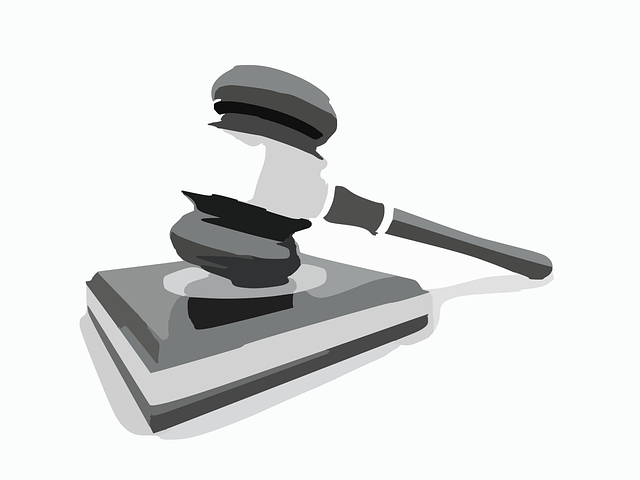Antitrust laws, aimed at preventing market monopolies, significantly influence small businesses, particularly during growth stages. These regulations can prevent large corporations from dominating markets and protect consumers from unfair practices. Small businesses must employ strategic measures like seeking expert legal counsel, staying updated on regulations, and conducting transparent communications to avoid antitrust violations. By understanding industry-specific laws, conducting regular audits, and engaging specialized attorneys, they can effectively manage legal complexities, mitigate risks, and ensure sustainable growth while minimizing the impact of antitrust laws.
“Unraveling the intricacies of litigation types is crucial for businesses navigating legal complexities. This comprehensive guide delves into the diverse landscape of court cases, focusing on antitrust laws and their profound impact on small enterprises. We explore real-world case studies, revealing strategies to mitigate risks and defend against potential violations. Moreover, practical tips equip businesses with the knowledge to face litigation head-on. Understanding these dynamics is essential for fostering resilience and ensuring compliance in today’s legal environment.”
- Understanding Different Types of Litigation: A Comprehensive Overview
- Antitrust Laws and Their Effect on Small Businesses: Case Studies and Strategies
- Navigating Legal Complexities: Practical Tips for Businesses Facing Litigation
Understanding Different Types of Litigation: A Comprehensive Overview

Understanding different types of litigation is crucial for any business, especially when navigating complex legal landscapes. In today’s economic climate, small businesses are often confronted with various legal issues that can significantly impact their growth and survival. One such area of concern is antitrust law, which plays a pivotal role in ensuring fair competition. The impact of antitrust laws on small enterprises cannot be overstated; these regulations prevent market dominance by large corporations, fostering a level playing field for smaller businesses to thrive. By understanding the nuances of antitrust litigation, respective businesses can protect themselves from potential legal pitfalls and ensure they have a winning challenging defense strategy.
For instance, white-collar defense is a specialized area that focuses on protecting individuals and entities from criminal charges related to business practices. This is particularly relevant when dealing with allegations of price-fixing, market manipulation, or anti-competitive conduct, which can lead to substantial fines and reputational damage. By employing expert legal counsel, businesses can build robust defenses, gather compelling evidence, and present powerful arguments to protect their interests. Through a comprehensive understanding of applicable laws and regulatory frameworks, small businesses can assert their rights while navigating the complexities of litigation successfully, ultimately enhancing their market position.
Antitrust Laws and Their Effect on Small Businesses: Case Studies and Strategies

Antitrust laws, while primarily designed to protect consumers from monopolistic practices, can significantly impact small businesses. These laws aim to foster fair competition and prevent restrictive business behaviors that could harm market dynamics. However, for smaller enterprises, especially those operating in niche markets, navigating these regulations can be complex and challenging.
Case studies show that small businesses may inadvertently run afoul of antitrust laws during their growth phases. For instance, a company expanding its market share through strategic partnerships might find itself under scrutiny for price-fixing or market division. Strategies to mitigate potential issues include seeking legal counsel early in business planning, ensuring transparent communication with partners, and staying updated on changing regulations. Engaging in open dialogue with regulatory bodies can also help clarify expectations and reduce the risk of costly jury trials, a common outcome in general criminal defense cases related to antitrust violations. Understanding and adhering to these laws throughout all stages of the investigative and enforcement process is crucial for small businesses aiming to thrive without incurring significant legal penalties.
Navigating Legal Complexities: Practical Tips for Businesses Facing Litigation

Navigating legal complexities can be daunting for businesses, especially when facing litigation. The impact of antitrust laws on small businesses is a significant concern, as these regulations can seem labyrinthine and intimidating. However, with strategic planning and professional guidance, companies can effectively manage these challenges.
One crucial step is to understand the specific laws applicable to their industry, including antitrust regulations that may affect their operations. Achieving extraordinary results often involves proactive measures such as conducting regular legal audits, staying informed about legislative changes, and establishing robust internal policies. Engaging experienced attorneys specializing in corporate and individual client cases, particularly those with expertise in white-collar defense, can provide invaluable support. These professionals can help decipher complex regulations, mitigate risks, and develop tailored strategies to protect business interests.
Understanding different litigation types is crucial for businesses aiming to navigate legal complexities. This article has provided a comprehensive overview of antitrust laws, their significant impact on small businesses, and practical strategies to mitigate risks. By studying case studies and adopting proactive measures, businesses can better manage potential legal challenges, ensuring long-term success in an ever-evolving regulatory landscape. The insights offered here serve as a valuable resource for fostering resilience against the complexities often associated with antitrust regulations, especially for smaller entities.






